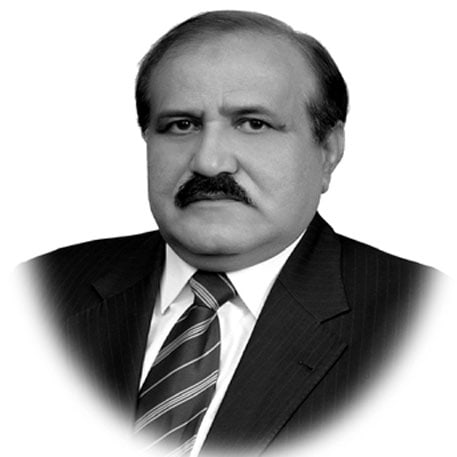Divorcing responsible withdrawal from Afghanistan
WITH Biden at helm, Afghan peace deal started appearing in tailspin. Instead of preparing for withdrawal of troops by 01 May as agreed upon, the US Administration started hinting differently.
“Taliban have not met their commitments. It is hard to see a specific way forward for the negotiated settlement” said Pentagon spokesperson.
NATO Secretary General, Jens Stoltenberg said at a meeting of its Defence Ministers that we will not leave before time is right.
It was being made to understand that their underlying motive was a responsible troops’ withdrawal than leaving an Afghanistan with chaos, uncertainty, strife and instability in its aftermath.
The premise was that Afghan Taliban have not complied with terms and conditions, contained in the peace agreement to pave the way for peace, tranquillity and stability in Afghanistan.
The speculations ran rife that the US would put the withdrawal of troops on hold for quite some time, however, in a surprise move, Biden has now announced to withdraw his troops and other foreign troops from Afghanistan unconditionally by forthcoming 9/11. NATO also hastened to endorse the announcement.
Now argument advanced is that we cannot continue the cycle of extending or expanding our military presence while hoping to create ideal conditions for our withdrawal and expecting a different result.
This indeed a summersault to what was underpinned by US for its continued presence in Afghanistan over a long haul. Its central strand was a peaceful, stable and prosperous Afghanistan before it leaves.
Notwithstanding charged sheet manufactured then by the US and its allies against the Taliban to prolong their stay in Afghanistan, today, factual position in Afghanistan is ominous for a smooth, peaceful and productive transition. Many issues hang in balance. Intra-Afghan negotiations are in disarray.
These are the keystone to work out power sharing formula, determine future government set-up including the State institutions and Constitution and evolve mechanism to disarm and integrate militants into society.
At present, there is a fragile government, afflicted by corruption, poor governance and incoherence born of ethnic, sectarian and tribal differences.
Many terrorist groups operate inside Afghanistan including IS with outside instigation and support. Afghanistan needs substantial foreign funding for its reconstruction and to initiate sustainable economic development.
No pledges or arrangements have been made for its provision. There is no moderator or guarantor to oversee the transition.
Instead of taking the responsibility, the US has outsourced it to other countries as Biden has said “we will ask other countries in the region to support Afghanistan especially, Pakistan, Russia, China, India and Turkey. It is simply the absurdity.
This starkly reminds what US did when the Soviet Union withdrew from Afghanistan in 1988 after its occupation for almost a decade.
It was a devastated country then in every sense of the word and needed all round substantive foreign support but it washed its hands off the affair and left Afghanistan to swim or sink at its own.
Afghans were the people who fought and undid the Soviet Union which was its vital objective during a long drawn and fierce cold war.
It was a selfish act of the US and now its replay seems on the anvil. Even an official of its puppet Afghan government has slammed US pullout as selfish though his logic is in conflict with what altruism as an obligation demands from the US.
As in 1988 onwards, Afghanistan slipped into a state of infighting, anarchy and instability, now as well, an uncertain future may envelop Afghanistan though earnestly, one would like to be wrong in his assessment.
Probably, this is the reason that Pakistan has guardedly responded to the development.
The spokesperson of its Foreign Office has said that Pakistan supports principle of responsible withdrawal in coordination with Afghan stakeholders.
It is important that withdrawal coincides with progress in peace process. A negotiated political solution through Afghan-led and Afghan-owned process is important for lasting peace and stability in Afghanistan.
Pakistan believes that another feature in the efforts for lasting peace and stability in Afghanistan should be a time bound and well-resourced plan for return of Afghan refugees to their homeland and their reintegration into Afghanistan.
This is the earnest concern which Pakistan does not only express but has supported it in every way possible within its grasp because a peaceful, stable and prosperous Afghanistan is in its interests, however, prognoses are not good.
The reason is emerging international rivalries. With its presence, US did not give stability to Afghanistan.
Many critics argue that probably it never wanted that way. It frittered away time and money wilfully. Now it wants to cause instability with its abrupt exit.
Though it has attempted to disguise it for a while in a craftily coined term of responsible withdrawal and then divorcing it abruptly.
It may be just a matter of time when it blames Afghans particularly, the Taliban for its exclusive flight.
Stability in Afghanistan is in the interest of the region and China is the most likely country to reap its dividends maximally and it is the main rival of US in emerging global setting.
Amid such an eventuality, it is quite understandable what the US is doing with regard to Afghanistan.
Above in view, apart from making efforts as intended to, Pakistan must brace itself up to live with an unstable Afghanistan. First, it should make itself internally strong because diplomacy begins at home.
Secondly, it should leverage its strategic position thoughtfully and imaginatively particularly, in context of CPEC and its influence in Afghanistan to acquire cushion time and spend it with maximum effectiveness.
— The writer, a retired Lt Col, is a senior columnist based in Islamabad.










